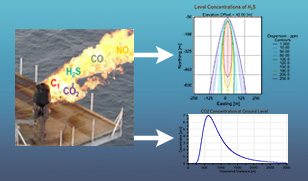Flaresim features
Latest features from Flaresim
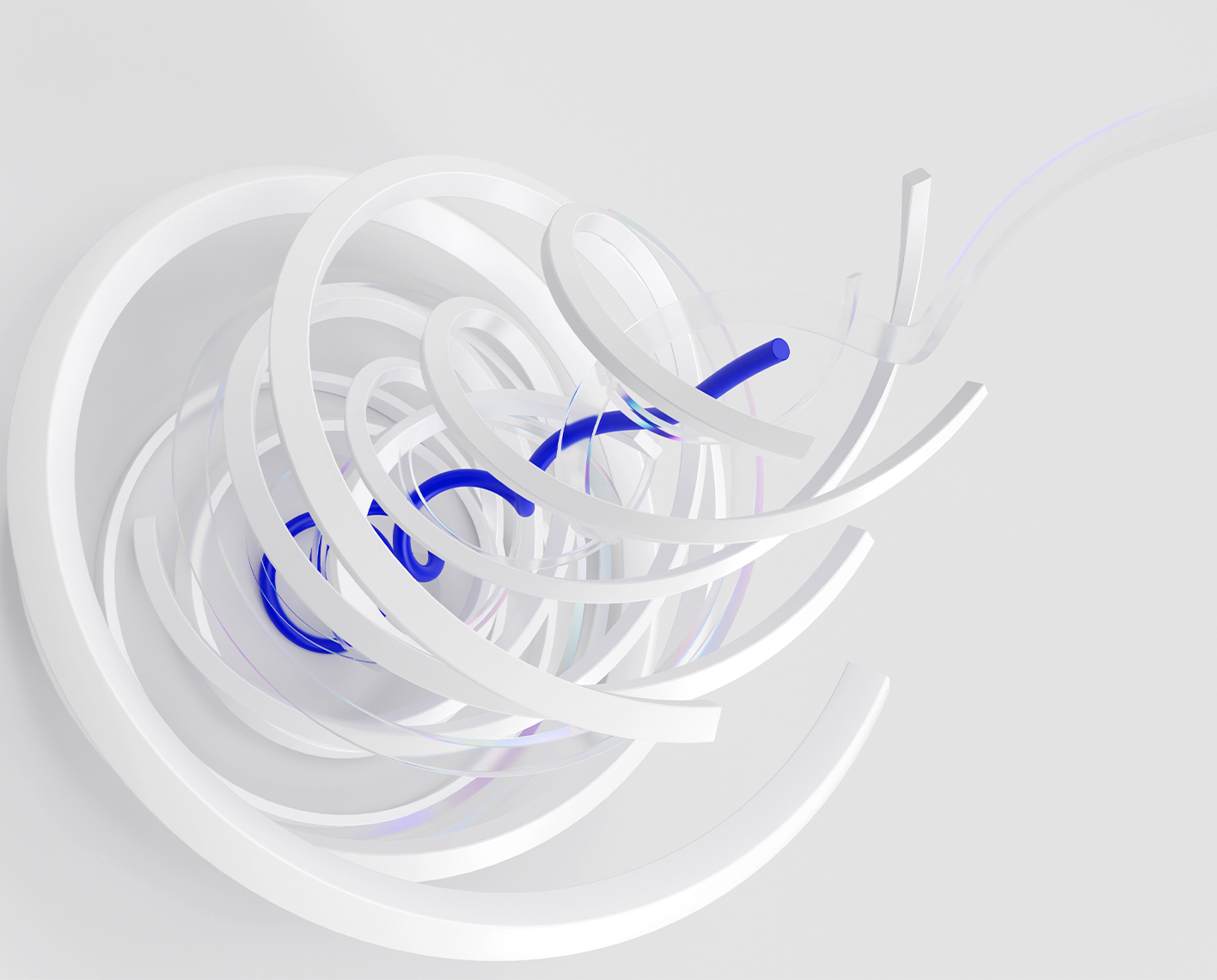
Flaresim software: share fluids across multiple cases
Flaresim™ flare systems design and analysis software’s new functionality makes it easier than ever to select and copy fluids from one case to another using a simple, streamlined workflow. This enhancement saves time and ensures consistency by transferring all fluid data, including original input values and calculated results, so everything stays aligned and audit-ready across cases.
This functionality is available for fluids characterized using Flaresim software, Symmetry software, REFPROP, and WellTestAPI methods.
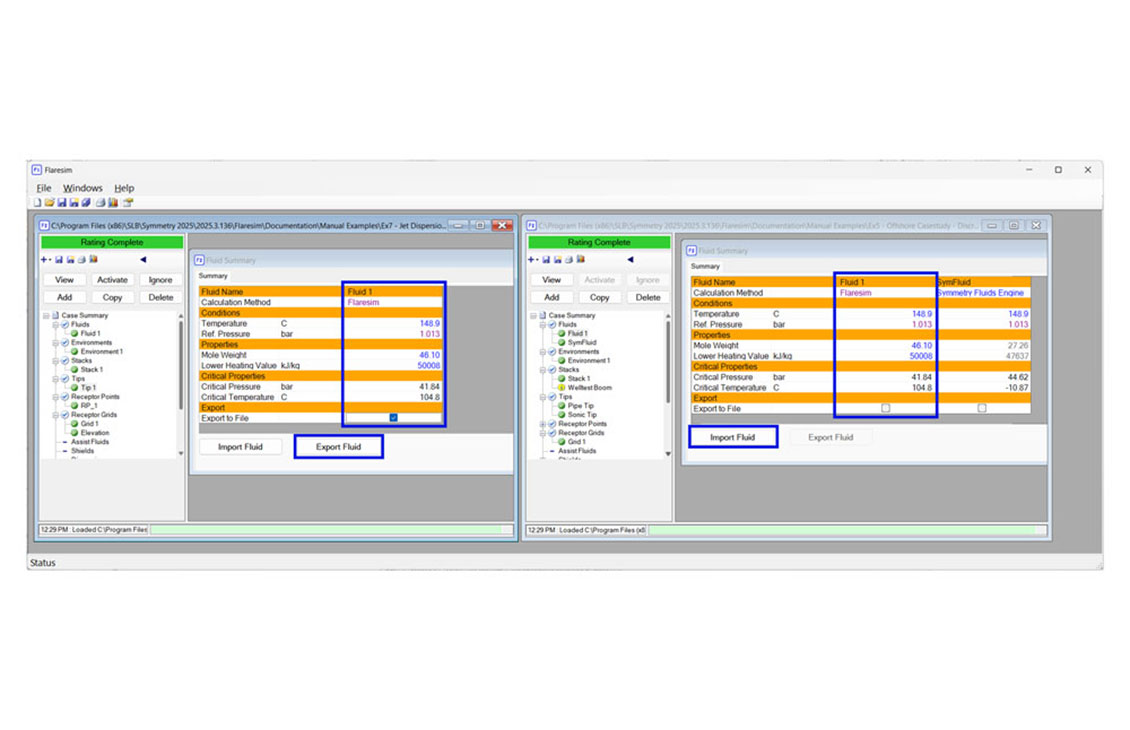
Flaresim 2024 Release Announcement
Flaresim™ flare systems design and analysis software is the industry standard and the leading software in the design and evaluation of flare systems, for both onshore and offshore applications. It provides accurate modelling of thermal radiation, temperature, and noise footprint during flaring of chemical processes, enabling comprehensive flare safety studies that generate highly customizable visual reports.
Gas dispersion calculations are available to model flammability and toxicity of combustion products, unburnt flared fluids, and pollutants. Combustion products are also reported for flare emissions accounting.
Flaresim software incorporates the Symmetry™ fluid engine, a robust physical property package that allows users to accurately characterize any fluid, providing access to an extensive library of pure components and thermodynamic property packages.
Flaresim software capabilities can also be accessed from within the Symmetry flare workspace, which provides capabilities to simulate the entire flare system in steady state and dynamics, including pressure relief valve (PRV) sizing and hydraulic analysis of the flare network.
Flaresim 2021
Protect your employees and environment
Quickly quantify values of radiation, noise, temperature, and concentration at key locations.
With the display of receptor points, you can know specific values of radiation, noise, temperature, and concentration at key locations, such as the workshop and helideck. Visualizing dispersion plots enables monitoring concentration values of the gases relieved from the flare tip.
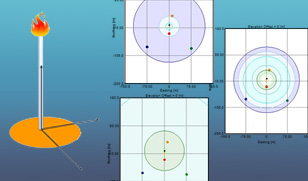
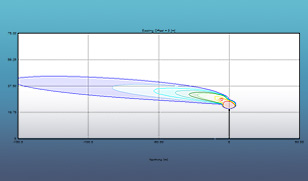
Protect assets and workers
Identify locations where flammability levels can reach the lower limit value needed to cause ignition and burning
Generate jet dispersion plots based on the approach to the fluid lower explosive limit (LEL) percentage. You can use it as a safety tool to know and identify locations where the concentration level is close to the LEL, indicating a risk of ignition and burning.
Protect your environment
Leverage flexibility in monitoring and quantifying emissions.
Contour and downwind Gaussian dispersion plots in volume concentration units (ppm) give you more flexibility in the units of reporting pollutants, combustion products, and unburnt flared fluid to match regulatory units used by environmental agencies.
